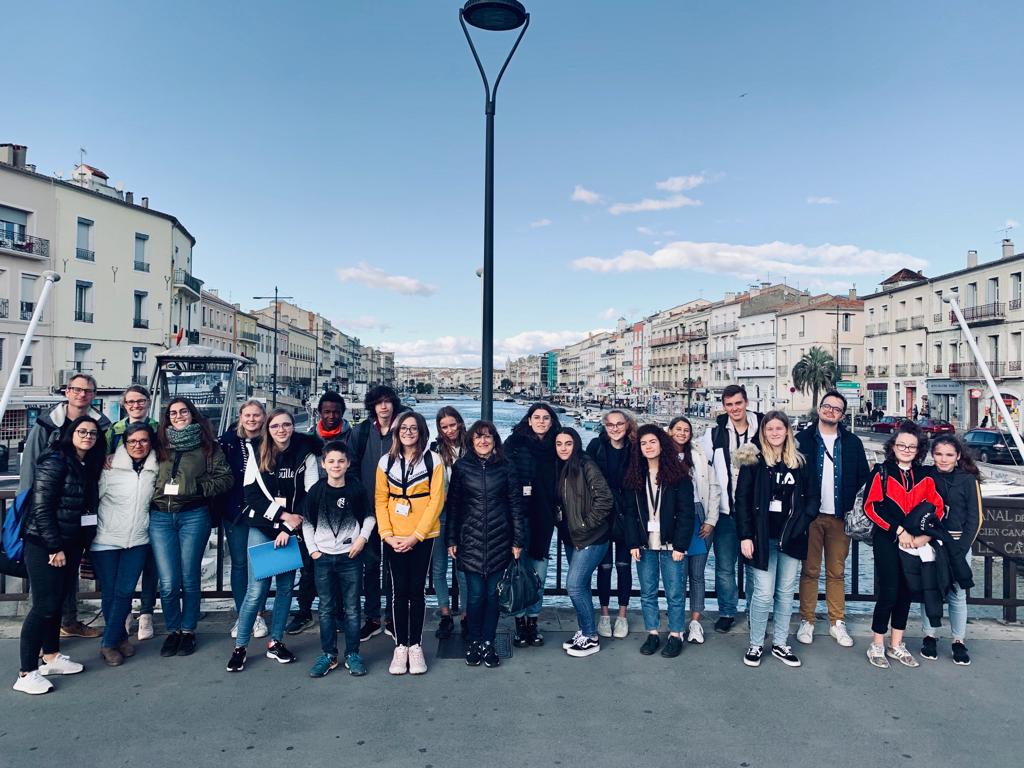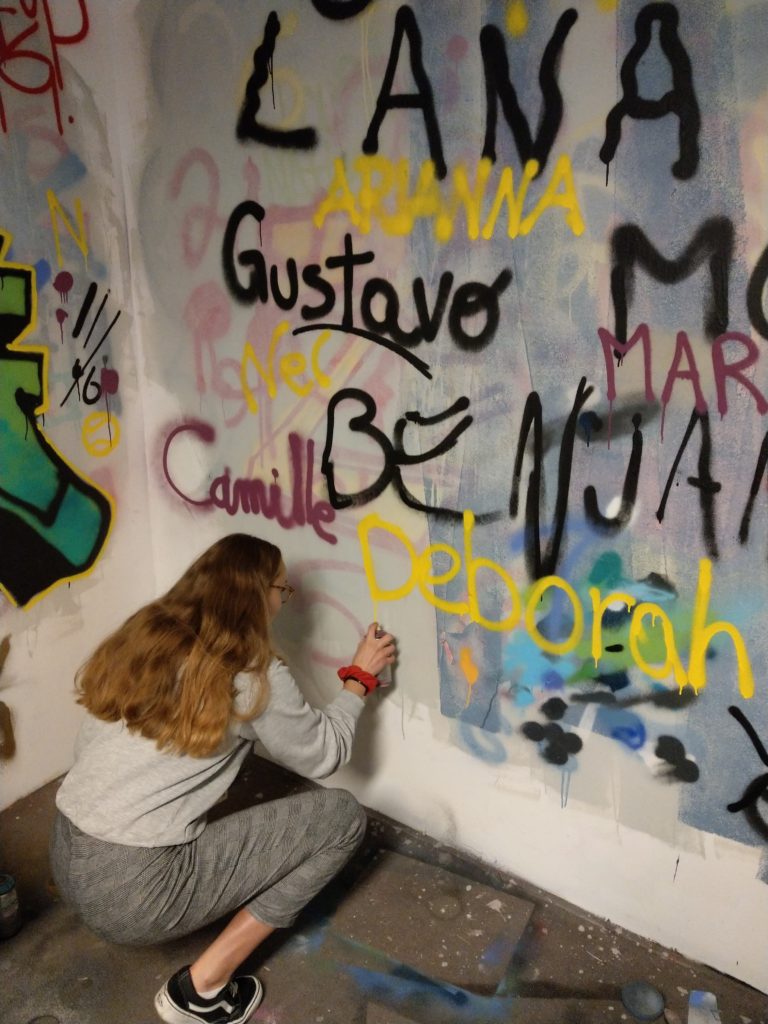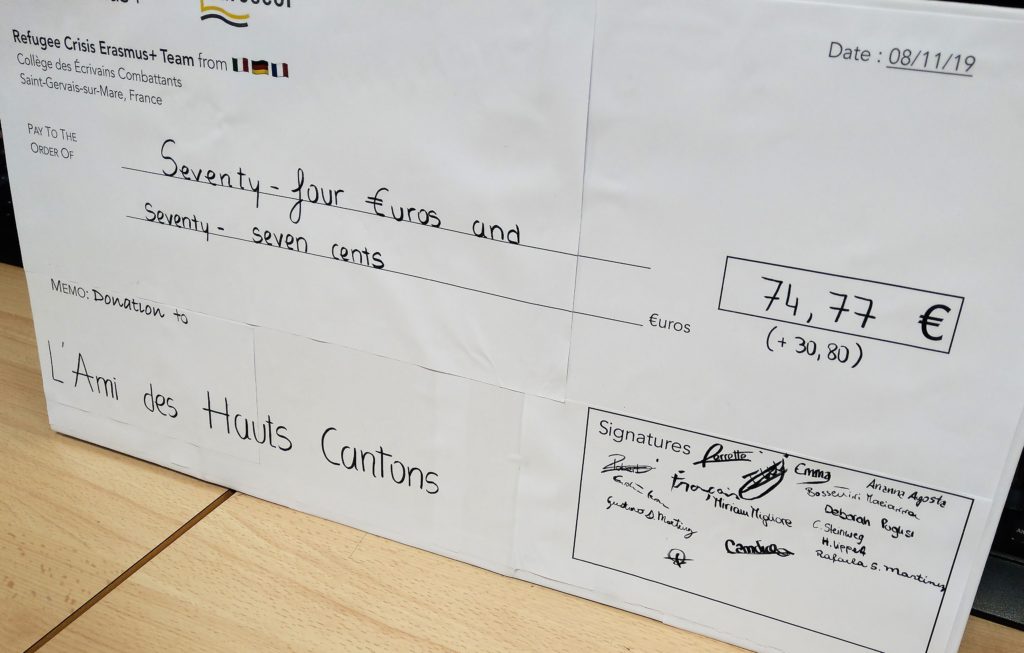During this mobility, we merged our information and results of our guiding questions A-D:
A: How do successful private integration initiatives and NGOs work?
B: In how far can private initiatives provide additional support where local authorities can’t?
C: How can we inspire students to take on responsibility and remain committed to integration projects?
D: How can we promote and advertise good private initiatives that could be perfect role models for others?
During the national working phase, they scrutinized private integration programs and NGOs in their local surrounding, discussed their way of working and their key to success (A, B, D). In particular, we focused on advantages of private initiatives that complement the work of local authorities — can private programs/ NGOs step in where local authorities can’t due to their limitations? They prepared presentations in the form of short video clips or Prezi presentations to introduce their selected flagship projects.

The international meeting in France
During the international meeting, the students presented different flagship projects and talked about their work and their key to success (philosophy, focal points, ideas, goals and management structures, common challenges like finding volunteers). For this they presented prepared short video clips about the different initiatives. We discussed the benefits and the challenges of their strategies as well as criteria to motivate and inspire students to engage themselves to social projects as well. We had the opportunity to discuss these aspects with a volunteer from a local NGO that aims at integrating former refugees into local communities from the area. In the dialogue that emerged, we also discussed the difficulties of volunteering and social engagement and what it meant to actively participate in an NGO.

We also visited and analyzed different local private integration projects, like SingA and Line‘Up in Montpellier, focusing on the necessity of individual social commitment on a voluntary basis and invited different stakeholders for interviews. Due to the local characteristics, we dealt with the unusual approach of helping refugees through art and sought a conversation with two refugees who were able to process their experiences through paintings and street art and received their first earnings. In addition, the French school invited one of the artists to an exhibition of his work.
The students reflected their experience in a motivational video.
During the week, the students started a charity fundraising, which we donated to a local NGO. Additionally, the students created a video motivating young people to get involved with integration projects.

Under the tab “Download” you can find even more materials and results!